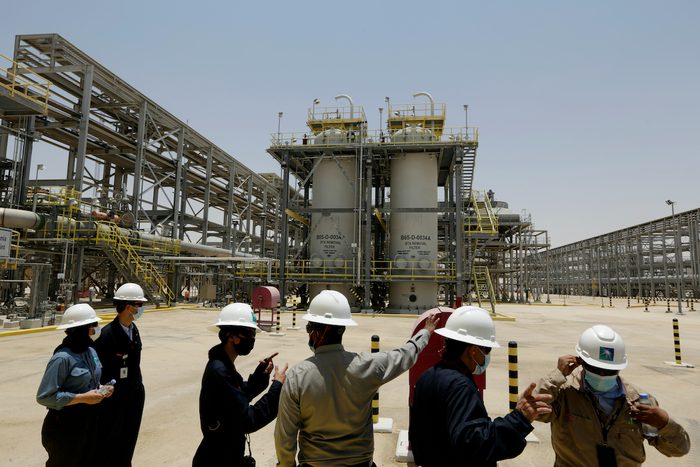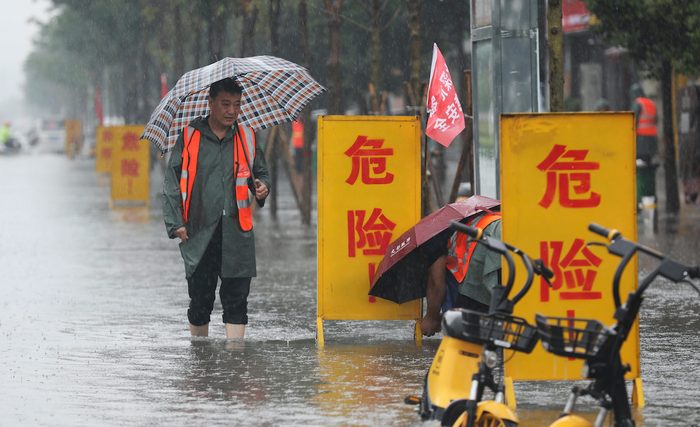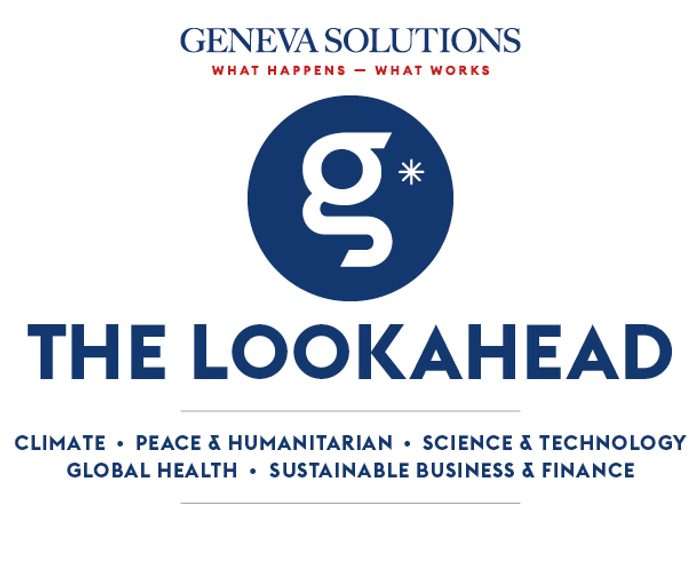Morning, this is Michelle and today we’re examining the polarising debate around carbon capture and storage technologies, as rights groups call for it to be sent to the scrap yard.
As central Europe and China reel from devastating floods, we learn that water-related hazards are the deadliest out of all disasters. Also, reusing 10 per cent of plastic products would go a long way in stopping plastic waste from entering the ocean. |
|
Climate & environment news
|
|

The Hawiyah Natural Gas Liquids Recovery Plant in Saudi Arabia, June, 2021. The facility was chosen as a pilot project for carbon capture technology. (Keystone/AP Photo/Amr Nabil)
|
|
⛽ Fossil fuels’ life support.
While still at early stages, carbon capture and storage technologies are increasingly being developed to trap CO2 emitted when fossil fuels are burned to produce energy. But environmentalists say CCS will only prolong the lifespan of a polluting industry and divert funds and attention from other climate solutions.
Geneva Solutions (EN)
|
|
Here's what else is happening
|

Warning signs with the word danger set up in Wuzhi County. Severe flooding in central China’s Henan Province on Tuesday has killed dozens. (Keystone/Feng Xiaomin/Xinhua via AP)
|
|
⛈️ Water related hazards deadliest.
Of all disasters, floods, storms, droughts, heatwaves and other water-related events have had the highest toll in human and economic losses in the past 50 years, according to a new analysis by the World Meteorological Organization. Only storms have caused over 570,000 deaths and $521bn in damages in that period.
As they become more frequent and severe due to climate change, tragedies are expected to keep happening. The torrential floods in central Europe and China this last couple of weeks that killed dozens are a stark reminder that such tragedies will keep happening as climate-related events become more frequent and severe.
WMO (EN)
|
|
|
📌 26-30 July | COPs to the BRS conventions.
Parties to the Basel, Rotterdam and Stockholm conventions on waste management, toxic chemicals and persistent pollutants will meet for an online segment and will reconvene for an in-person meeting next year.
BRS (EN)
|
|
|
♻️ Making 10 per cent of plastic packaging reusable
would equal halving plastic debris that ends up in the ocean, according to a new study by the World Economic Forum. Currently, 50 per cent of plastic production is for single use and only 14 per cent of plastic packaging is collected to be recycled.
Plastic pollution is having detrimental effects on the environment and human health. To address this, governments and industries have started pushing for phasing out disposable plastic products but scientists are calling to tackle the problem at the source and phase out virgin plastic production by 2040.
|
|
|
GS news is a new media project covering the world of international cooperation and development. Don’t hesitate to forward our newsletter!
Have a good day!
|

|
|
Avenue du Bouchet 2
1209 Genève
Suisse
|
|
|
|










